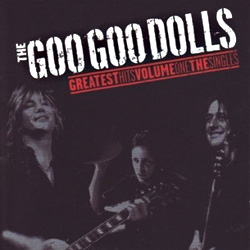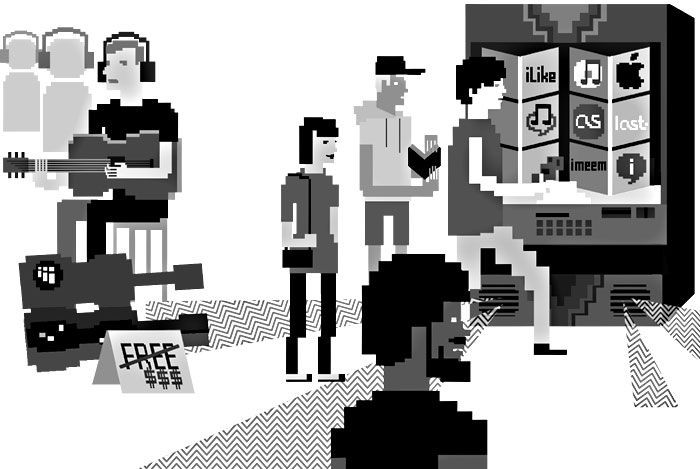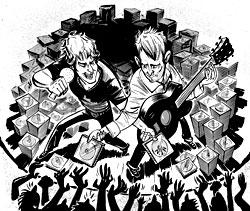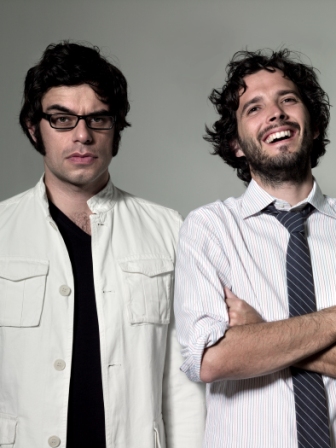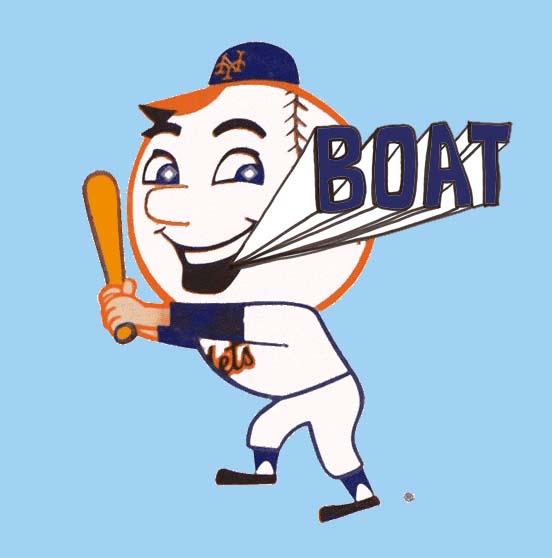“Best of” albums often have the slimy, vapid feel of old guys trying to hang on to their scraps of relevance. As an artist, you don’t necessarily want a “best of” or a “greatest hits” to your name—it suggests that your best days have gone by, the meat of your career codified and growing cold. Sure, it can mean 28 million in sales if you’re the Eagles (see: Their Greatest Hits: 1971–1975). If you’re the Beatles, it can even mean a milestone (“We can fill an album with just No. 1 hits!”).
The standard for what counts as “the best of” has been low for a while. But now that iTunes and downloading in general have irrevocably changed the experience of buying albums through liberating and unwrapping individual songs, it begs the question: Why are there still “best of” and “greatest hits” albums being made? This month, the Goo Goo Dolls join the likes of Mandy Moore, the Backstreet Boys, Color Me Badd, Ol’ Dirty Bastard, MC Hammer, and Macy Gray by releasing Greatest Hits, Vol. 1 (note the threat of more volumes to come). Who else joins the “greatest hits” album parade this month (and just in time for Christmas)? Godsmack, Garth Brooks, Snoop Dogg, Boyz II Men, Van Morrison, Nas, Dr. Dre, and Keith Urban.
From this, we can make a few conclusions/assumptions:
1. Nicole Kidman is a demanding and expensive wife, hence hubby Keith Urban’s need of quick cash.
2. Releasing a “greatest hits” or “best of” album must now be a major-label requirement.
3. You don’t have to have “hits” to have a “greatest hits” album, per se.
Just another way to make money? Yes, and it always has been. You could argue that the music industry wouldn’t survive without the ability to repackage the same crap. We joke about how the Backstreet Boys’ The Hits—Chapter One came out four years after their debut, but the Rolling Stones’ first “best of” album, Big Hits (High Tide and Green Grass) was also released four years into their career. The difference? By 1966, the Rolling Stones already had titles like “Play With Fire” and “Satisfaction” on the bill, while the Backstreet Boys just wanted to delay their inevitable “Backdoor Boys” porn shoot.
But in the digital era, “best of” albums have lost their worth. They are mere promotional gimmicks. For starters, they’re a desperate attempt by major labels to keep their foot in the market while the Internet runs away with their product. They are also a way for immature bands to release one solid album after years of releasing nothing but mediocrity.
Ultimately, however, we don’t give a shit anymore. Keep your fancy packaging, boys; hold off on that Annie Leibowitz photo shoot. If something is catchy, it will show up on MySpace pages and be transformed into a ring tone. In the digital era (in which blank CDs have been the best-selling CDs for several years running), packaging is an afterthought.
So, with music being so cheap to produce these days, wouldn’t it be a fabulous idea if more bands waited until they actually had an album’s worth of good songs before putting out a “best of”?
Thankfully, there are a few holdouts, most notably Radiohead, Metallica, and AC/DC, all of whom have yet to release a single “best of” package. In fact, Radiohead and AC/DC must feel that their albums aren’t capable of being chopped up, as they have yet to make their music available on iTunes. Some albums just aren’t made for that (how could you pick just one “best of” track from Morrison’s Astral Weeks or Dre’s The Chronic?). Listening to the constant evolution of a band like Radiohead’s sound takes not just time but patience. Each album is an impressive and cogent statement rather than a radio-ready single. A song will become viral and popular by virtue of its catchiness; it will last because of timelessness and depth.
Sure, there will always be a place for hit singles. But if they’re going to continue releasing albums, major labels should avoid “greatest hits” packages. Rather, they would do well to let the hit singles exist online, and instead focus on nurturing great albums from the artists still capable of producing them. We may occasionally dance to Rihanna’s “Umbrella” when we hear it in McDonald’s, but we will download Radiohead’s In Rainbows and talk about it for years with our friends. We will forget Rihanna’s name overnight, but we will tattoo Radiohead’s lyrics on our thighs.
